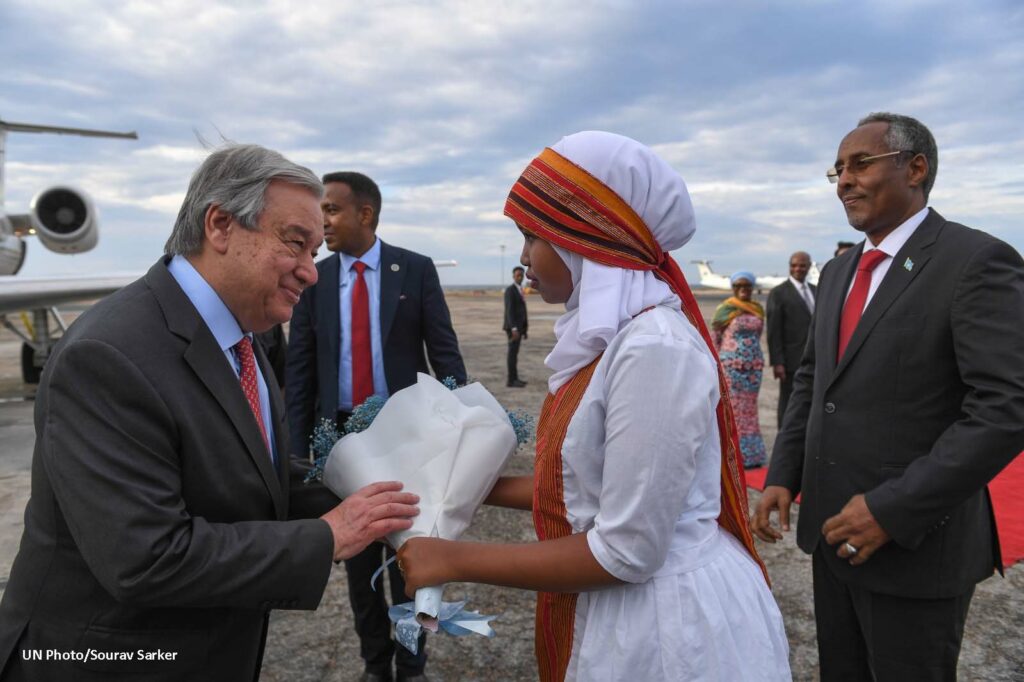United Nations Secretary-General, Antonio Guterres has called for massive international support for the Somalian People, revealing the nation was dealing with humanitarian difficulties while at the same time also combating a serious terrorism threat.
Read More: Guns Banned From the Streets of Mogadishu
“The international community has the responsibility and the interest to support Somalia with the resources needed to defeat Al-Shabaab, to build resilience, stabilise the areas liberated, and to provide much needed humanitarian assistance,” he said.
Last year, Somali President Hassan Sheikh Mohamud launched a major offensive against the Islamist militants, backed by allied local clan militias. The government claims to have killed 3,000 Al-Shabaab fighters since the campaign was launched, but the militant group has repeatedly shown its ability to strike back.
https://twitter.com/antonioguterres/status/1646070650304339971?s=20
In Mogadishu, Guterres also met with representatives of Somali civil society organisations working in women’s affairs and empowerment, climate change, persons with disabilities, youth, and marginalised groups and said he was “deeply inspired by their vision and energy.”
He added that he welcomed the government’s commitment to women’s rights and representation, and called “for the full implementation and codification of the 30 per cent quota for women in elections”.
Read More: Impact of the new Immigration regulations on the daily life of migrants in Spain
While in the country, Guterres also visited a camp for internally displaced people in the south-western city of Baidoa where he lauded the determination of residents to rebuild their lives, saying the international community should do more to support them. Following five consecutive failed rainy seasons, 1.4 million people have been displaced by the drought, with women and children making up 80 per cent of them.
